
The Enchanting Sarajevo Surroundings
The surroundings of Sarajevo offer a beautiful escape into nature and history. Just a short drive from the bustling city, you can find yourself in serene landscapes, charming villages, and historical sites that tell the story of Bosnia and Herzegovina's rich past. One of the must-visit spots is the Olympic Mountains, where you can hike, ski, or simply enjoy the breathtaking views. The mountains hosted the 1984 Winter Olympics and still carry the spirit of those games. The area is perfect for outdoor enthusiasts and families alike. Another gem is the village of Lukomir, the highest and most remote village in the country. Here, you can step back in time and experience traditional Bosnian life. The stone houses, untouched by modern architecture, and the stunning natural surroundings make Lukomir a unique destination. For history buffs, a trip to the Tunnel of Hope is essential. This tunnel was a lifeline for the people of Sarajevo during the siege in the 1990s. Today, it stands as a museum and a poignant reminder of the city's resilience. Nature lovers should not miss the Vrelo Bosne, a beautiful park at the source of the Bosna River. The park is a perfect place for a picnic, a leisurely walk, or a horse-drawn carriage ride through lush greenery and crystal-clear waters.
Local tips in Sarajevo Surroundings
- Visit the Olympic Mountains early in the morning for the best views and to avoid crowds.
- Bring cash when visiting remote villages like Lukomir, as ATMs are scarce.
- Wear comfortable shoes for walking when exploring the Tunnel of Hope.
- Pack a picnic for a relaxing day at Vrelo Bosne.
- Check the weather forecast before heading to the mountains to ensure a safe and enjoyable trip.
The Enchanting Sarajevo Surroundings
The surroundings of Sarajevo offer a beautiful escape into nature and history. Just a short drive from the bustling city, you can find yourself in serene landscapes, charming villages, and historical sites that tell the story of Bosnia and Herzegovina's rich past. One of the must-visit spots is the Olympic Mountains, where you can hike, ski, or simply enjoy the breathtaking views. The mountains hosted the 1984 Winter Olympics and still carry the spirit of those games. The area is perfect for outdoor enthusiasts and families alike. Another gem is the village of Lukomir, the highest and most remote village in the country. Here, you can step back in time and experience traditional Bosnian life. The stone houses, untouched by modern architecture, and the stunning natural surroundings make Lukomir a unique destination. For history buffs, a trip to the Tunnel of Hope is essential. This tunnel was a lifeline for the people of Sarajevo during the siege in the 1990s. Today, it stands as a museum and a poignant reminder of the city's resilience. Nature lovers should not miss the Vrelo Bosne, a beautiful park at the source of the Bosna River. The park is a perfect place for a picnic, a leisurely walk, or a horse-drawn carriage ride through lush greenery and crystal-clear waters.
When is the best time to go to Sarajevo Surroundings?
Iconic landmarks you can’t miss
Baščaršija
Explore Baščaršija, Sarajevo's historic Ottoman bazaar: a vibrant blend of culture, crafts, and cuisine in the heart of the city.
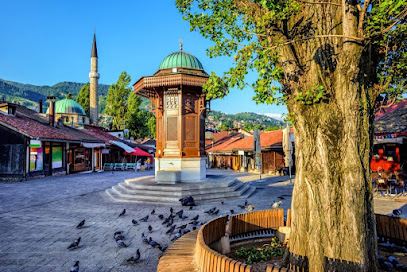
Vrelo Bosne
Discover Vrelo Bosne: Sarajevo's natural spring, offering serene landscapes, diverse wildlife, and a peaceful escape for all nature lovers.

Sebilj
An iconic Ottoman fountain in Sarajevo's heart, the Sebilj is a symbol of the city's history and a promise of return.
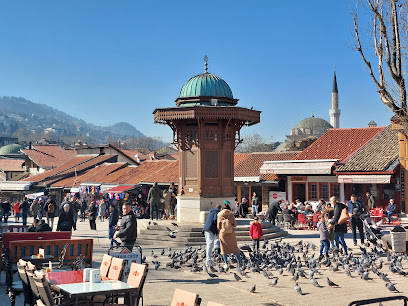
Tunnel of Hope
Experience Sarajevo's Tunnel of Hope: a symbol of resilience during the Bosnian War, offering a glimpse into a city's struggle for survival.
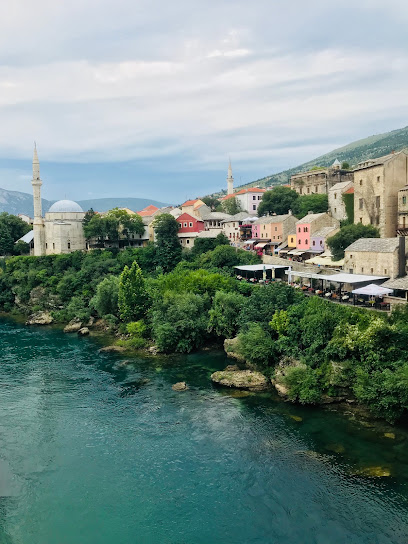
Latin Bridge
Experience the rich history and breathtaking views at the iconic Latin Bridge in Sarajevo, a historical landmark that shaped the world.
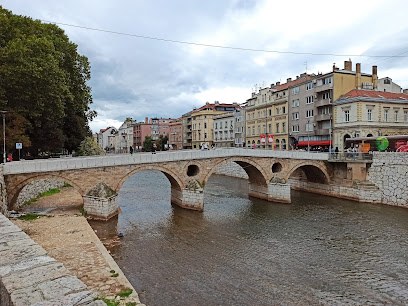
Sarajevo City Hall
Discover Sarajevo City Hall: A stunning architectural gem with a rich history, symbolizing Sarajevo's resilience and cultural heritage.
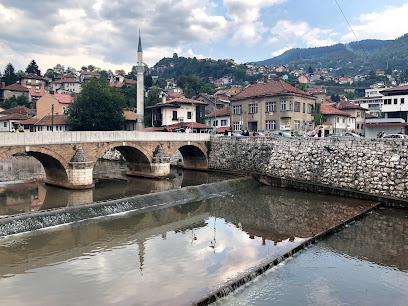
Yellow Fortress
Experience breathtaking views and rich history at Sarajevo's Yellow Fortress, a cultural landmark offering panoramic vistas of the city.
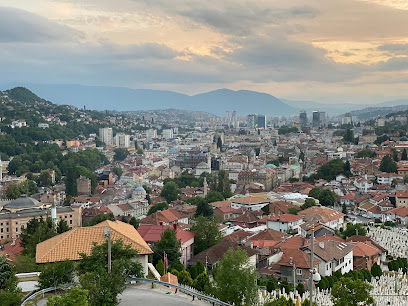
Vječna vatra
A solemn war memorial in Sarajevo, the Eternal Flame commemorates the victims of WWII and symbolizes the city's enduring spirit and resilience.
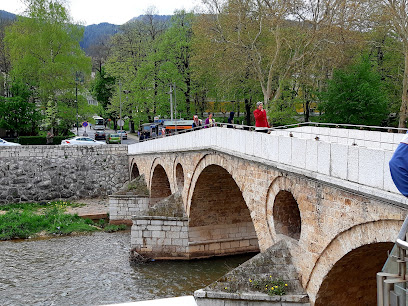
Avaz Twist Tower
Experience breathtaking panoramic views of Sarajevo from the iconic Avaz Twist Tower, a symbol of the city's modern spirit and architectural innovation.
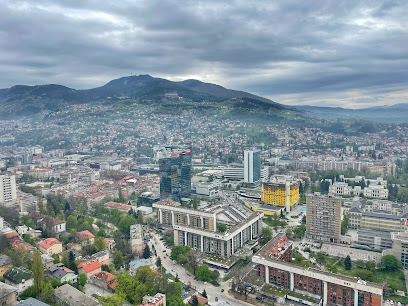
The National Museum of Bosnia and Herzegovina
Explore Bosnia and Herzegovina's rich history and cultural heritage at the National Museum in Sarajevo. Discover artifacts, exhibitions, and more!
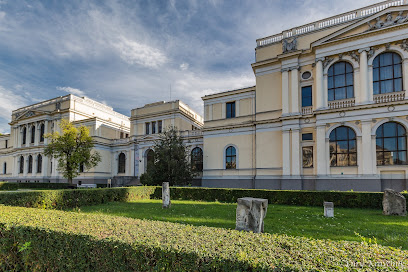
Gazi Husrev-beg Mosque
Discover Sarajevo's Ottoman gem: the Gazi Husrev-beg Mosque, a historical and cultural landmark in the heart of Baščaršija.
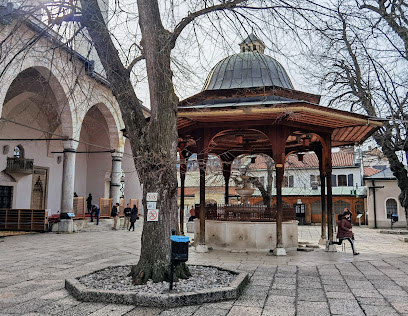
Tarcin Forest Resort & Spa Sarajevo - MGallery
Escape to a tranquil mountain haven near Sarajevo, offering luxury, wellness, and outdoor adventures in a stunning natural setting.
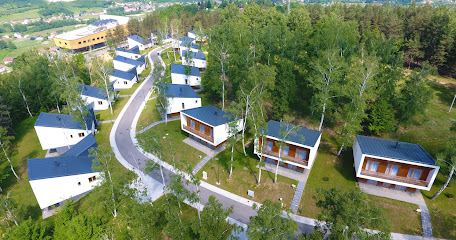
Mrvica Old Town
Experience the taste of France in the heart of Sarajevo. Fresh pastries, delightful breakfasts, and a cozy atmosphere await!
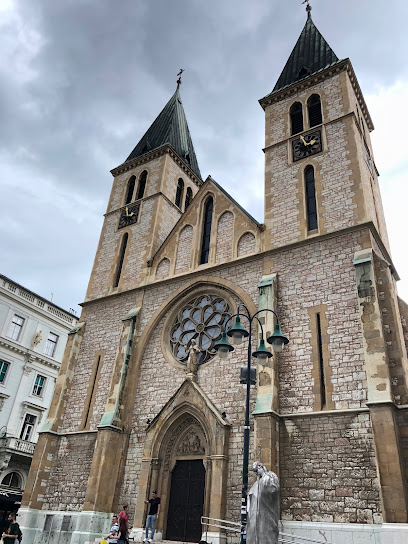
Ali Pasha's Mosque
Discover Ali Pasha's Mosque in Sarajevo: a stunning example of Ottoman architecture and a serene sanctuary with a rich history.
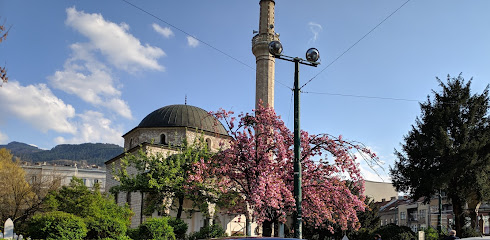
Museum of Crimes Against Humanity and Genocide
Explore the harrowing history of the Bosnian War and the Srebrenica genocide through powerful exhibits and personal stories in Sarajevo.
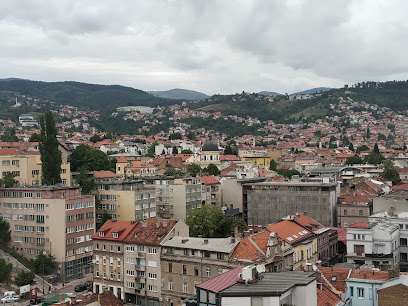
Unmissable attractions to see
Sunnyland
Discover the thrill of Sunnyland in East Sarajevo, where amusement rides, indoor play, and delicious pizza create unforgettable family adventures.
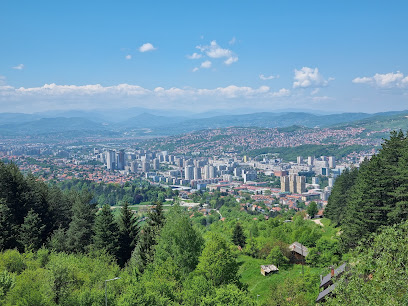
Ali Pasha's Mosque
Explore the architectural beauty and serene atmosphere of Ali Pasha's Mosque, a cornerstone of Sarajevo's Islamic heritage and history.
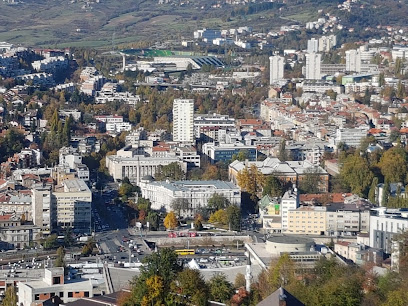
Bistrik tower
Discover the enchanting Bistrik Tower in Sarajevo, a historical fortress offering stunning views and a glimpse into the city's rich architectural heritage.
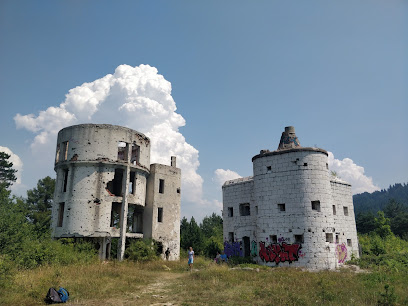
View of Sarajevo
Discover the stunning panoramic views of Sarajevo at the breathtaking observation deck, a must-see for travelers exploring this vibrant city.
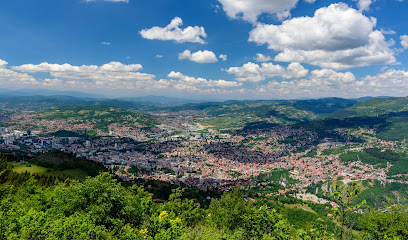
Ars Aevi
Explore the vibrant world of contemporary art at Ars Aevi, Sarajevo's premier modern art museum showcasing innovative works and cultural heritage.
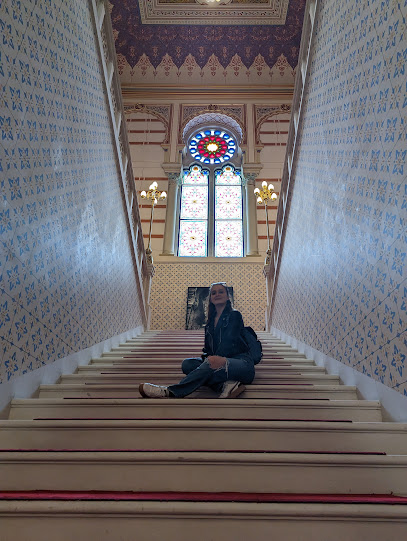
Festival svjetla Sarajevo
Discover the enchanting Festival svjetla in Sarajevo, where art meets light in a dazzling celebration of culture and creativity.
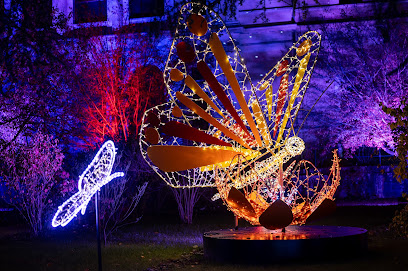
Nekropole sa stećcima
Explore the ancient Nekropole sa stećcima, a UNESCO World Heritage site in Bosnia and Herzegovina, where medieval tombstones reveal centuries of history.
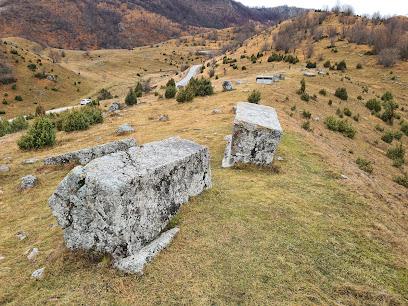
Viewpoint of Sarajevo
Experience the stunning panoramic views of Sarajevo from its iconic viewpoint, an unmissable destination for travelers seeking beauty and history.
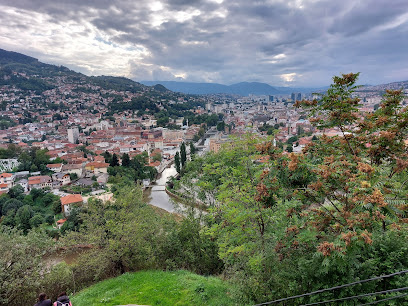
Sarajevo VRX Immersive Museum
Explore the wonders of virtual reality at Sarajevo VRX Immersive Museum, where history meets the future in an engaging and interactive setting.
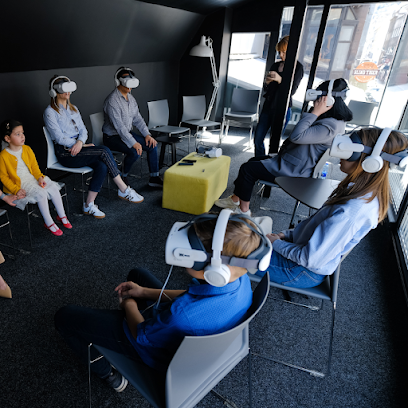
A Glimpse of the War
Explore the emotional landscapes of Sarajevo's past at A Glimpse of the War, where history unfolds through powerful narratives and poignant sites.
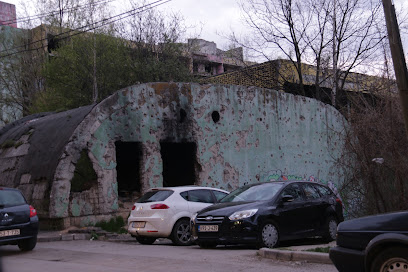
Izvorište
Experience the serene beauty of Izvorište in Sarajevo, a tranquil escape perfect for nature lovers and cultural explorers alike.
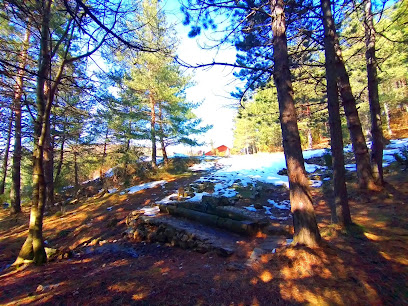
Free walking tour
Explore Sarajevo's rich history and vibrant culture with the Free Walking Tour, an engaging journey through the city's captivating streets.

TheYoloGeek Sarajevo Sign
Visit the YoloGeek Sarajevo Sign, a vibrant cultural landmark reflecting Sarajevo's modern spirit, perfect for memorable photos and local experiences.
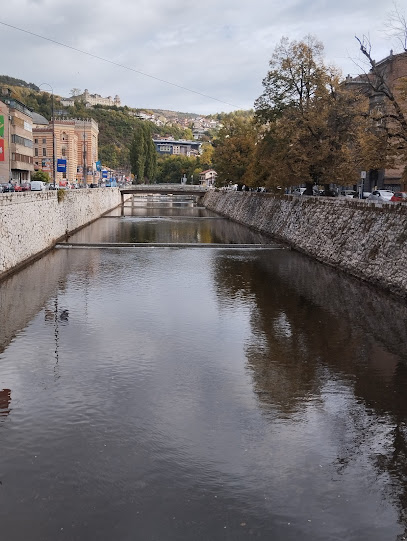
Essential places to dine
Klopa
Experience authentic Bosnian cuisine at Klopa in Sarajevo – where tradition meets flavor in every dish.
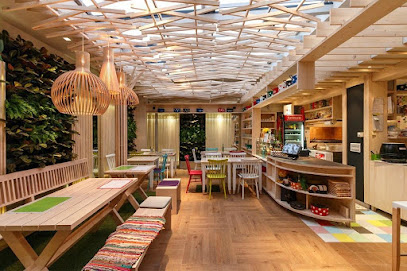
Kibe Mahala
Discover the authentic taste of Bosnia at Kibe Mahala – where tradition meets culinary excellence in Sarajevo.
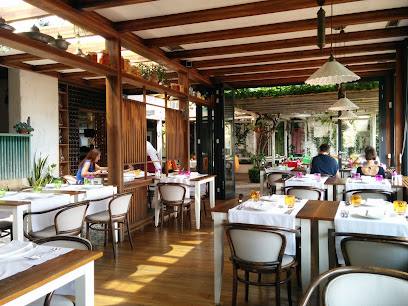
Dveri
Discover Dveri: A charming restaurant in Sarajevo offering authentic Bosnian cuisine with a modern twist amidst warm hospitality.
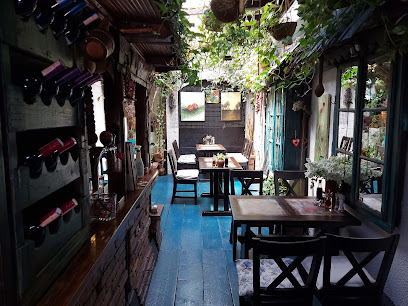
The Four Rooms of Mrs. Safija
Experience the fusion of traditional Bosnian flavors and modern culinary artistry at The Four Rooms of Mrs. Safija in Sarajevo.
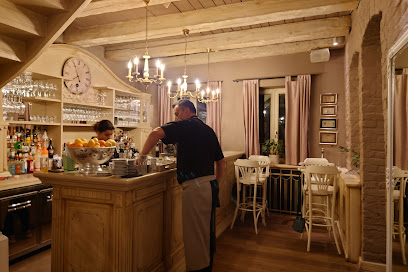
Inat kuća
Experience authentic Bosnian cuisine at Inat Kuća in Sarajevo – where tradition meets taste in a historic setting.
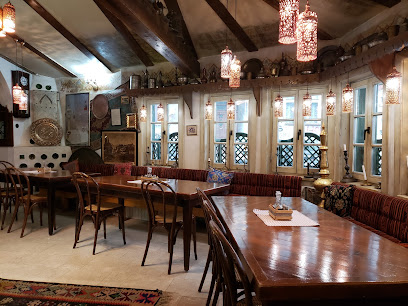
Barhana
Experience authentic Bosnian flavors at Barhana in Sarajevo - where every meal tells a story!
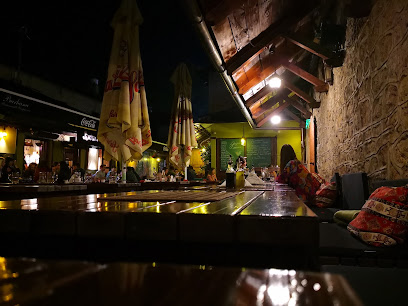
Avlija
Experience authentic Bosnian cuisine at Avlija in Sarajevo, where delicious flavors meet warm hospitality in a charming setting.
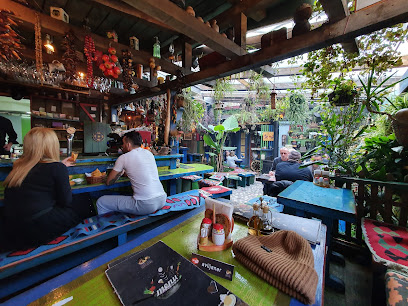
Nanina Kuhinja
Experience authentic Bosnian cuisine at Nanina Kuhinja - where tradition meets taste in Sarajevo.
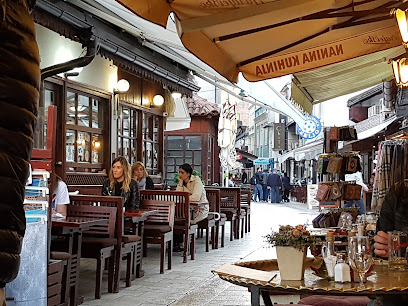
Blind Tiger
Experience Sarajevo's vibrant culinary scene at Blind Tiger, where tradition meets modernity in every delicious bite.
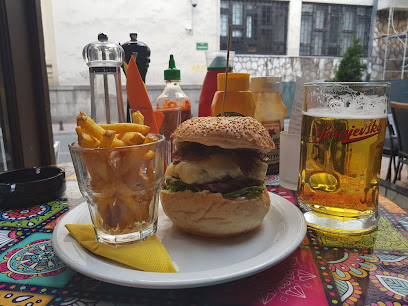
Capital Restaurant
Savor the exquisite blend of Middle Eastern and international cuisines at Capital Restaurant in Sarajevo - a must-visit culinary destination.
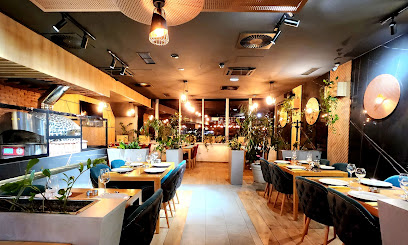
Del Gusto
Experience the rich flavors of Bosnia at Del Gusto - where traditional meets modern in an unforgettable dining experience.
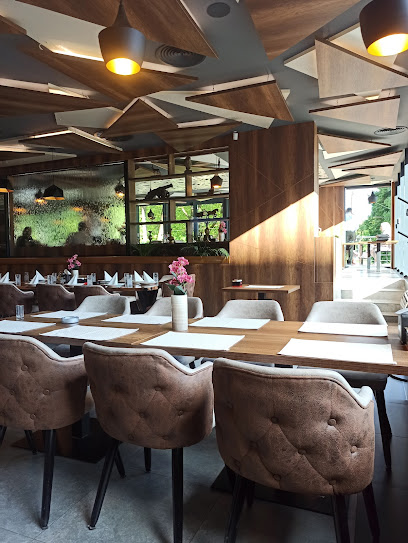
Restoran SOKAK
Discover the essence of Bosnian flavors at Restoran SOKAK, where traditional dishes meet warm hospitality in Sarajevo's vibrant dining scene.
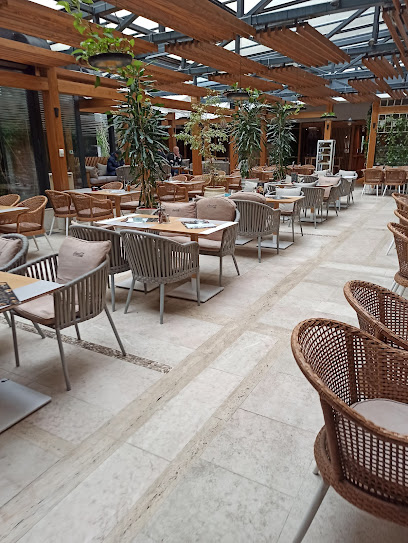
Restoran Stare Vrbe Sarajevo
Experience authentic Bosnian cuisine paired with live music at Restoran Stare Vrbe in Sarajevo - a must-visit for foodies!
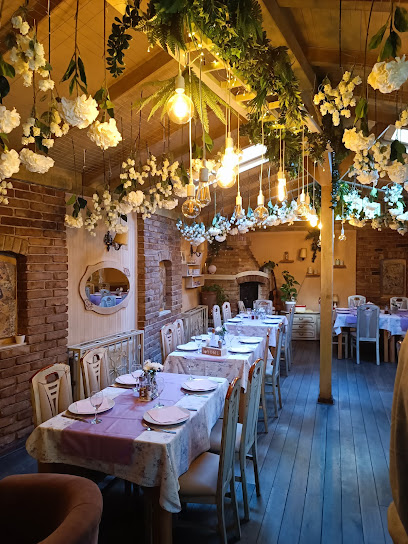
DOS HERMANOS
Discover Sarajevo's culinary treasure at Dos Hermanos - savor exquisite steaks and fine wines in a charming atmosphere.
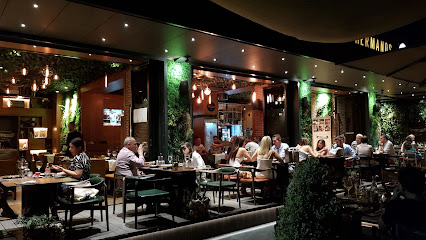
Four Seasons Penthouse Restaurant
Experience luxury dining at its finest with breathtaking views at Four Seasons Penthouse Restaurant in Sarajevo.
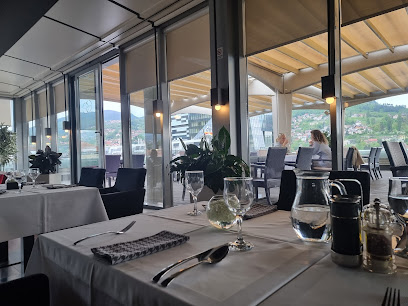
Markets, malls and hidden boutiques
SCC - Sarajevo City Center
Discover modern shopping and vibrant culture at SCC - Sarajevo City Center, a premier destination in Bosnia and Herzegovina.
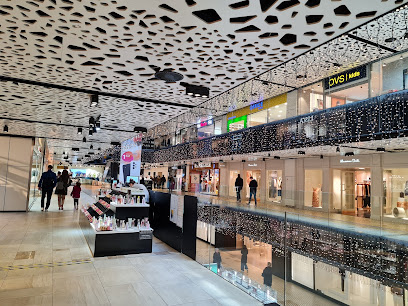
Aria
Explore Aria Shopping Mall, a premier shopping and dining destination in Sarajevo, offering a diverse mix of stores and a vibrant atmosphere for all visitors.
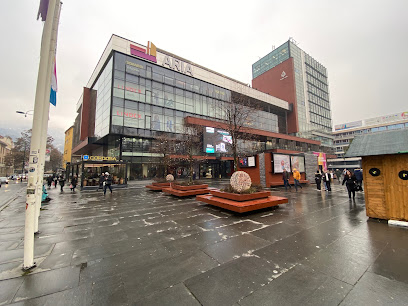
Alta Shopping Center
Explore Sarajevo's top shopping destination at Alta Shopping Center, where fashion, food, and fun come together for an unforgettable experience.
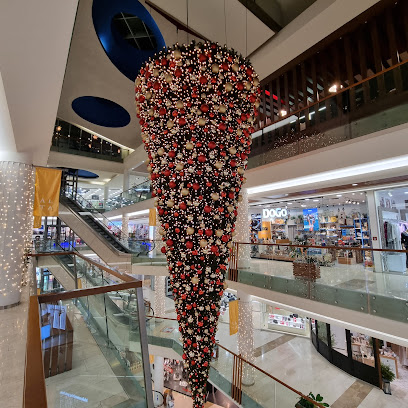
Grand Centar
Discover a shopping haven at Grand Centar in Ilidža, where diverse shops, delightful dining, and entertainment await every visitor.
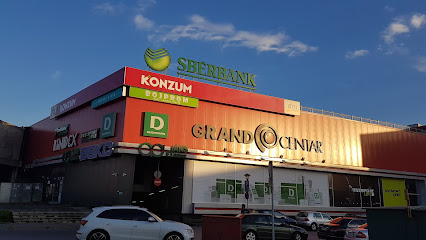
Pijaca Markale food market
Explore Pijaca Markale: Sarajevo's iconic food market, a vibrant hub of local culture, fresh produce, and historical significance.
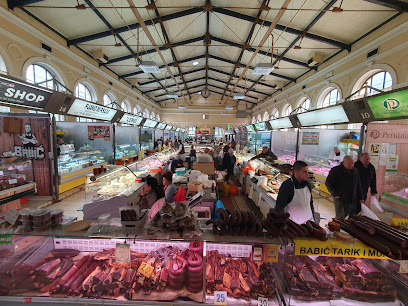
Merkur Shopping Center Otoka
Explore Sarajevo's premier shopping destination at Merkur Shopping Center Otoka, where diverse retail, dining, and entertainment await you.
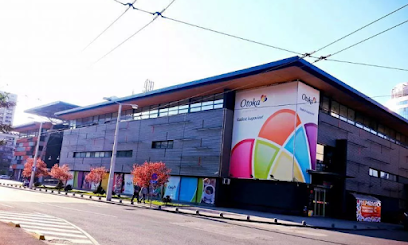
Merkur Shopping Centar Otoka
Experience the best shopping in Sarajevo at Merkur Shopping Centar, where local charm meets international brands in a vibrant atmosphere.
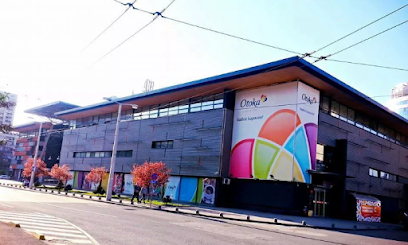
Importanne Shopping Centar
Explore the lively Importanne Shopping Centar in Sarajevo, offering a rich blend of shopping, dining, and entertainment for all visitors.
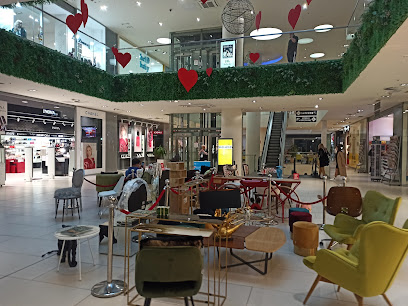
Gazi Husrev-beg's Bezistan
Discover the historical shopping arcade Gazi Husrev-beg's Bezistan; a vibrant hub of culture and craftsmanship in the heart of Sarajevo.
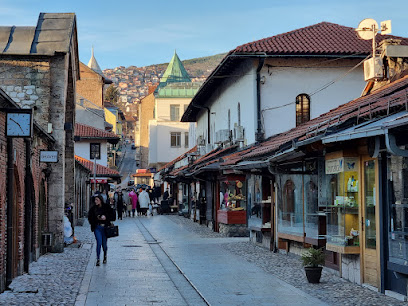
Magaza | Dino Merlin Official Shop
Explore Magaza | Dino Merlin Official Shop in Sarajevo - a cultural hub for music lovers and a treasure trove of unique gifts.
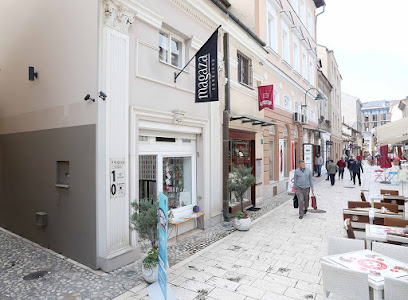
Sirano
Explore Sirano, Sarajevo's bustling market, where local culture meets unique crafts and fresh produce in an unforgettable shopping experience.
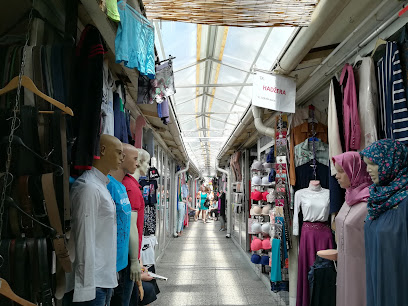
Butik Badem
Discover the sweet side of Sarajevo at Butik Badem, where traditional and modern desserts come together in a cozy atmosphere.
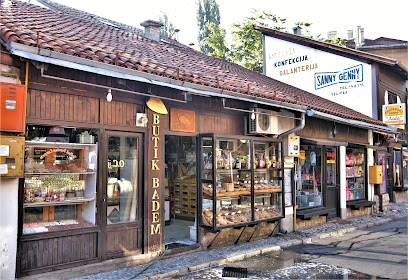
Bosnian Kingdom Shop
Discover the rich heritage of Bosnia through unique clothing at the Bosnian Kingdom Shop, where tradition meets modern fashion.
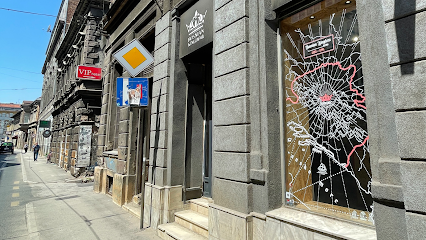
Bazerdžan Baščaršija | Concept Store, Fashion, Souvenir, Gift Shop
Explore Sarajevo's cultural heart at Bazerdžan Baščaršija, a concept store brimming with unique gifts, fashion, and souvenirs that celebrate local artistry.
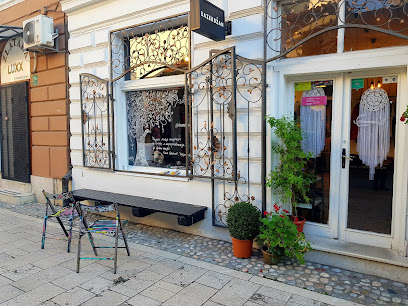
Royal With Cheese
Explore Royal With Cheese in Sarajevo for unique clothing, local art, and vinyl records, capturing the city's vibrant culture and creativity.
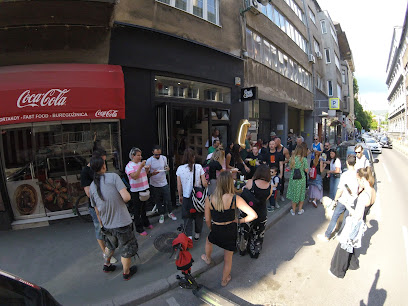
Essential bars & hidden hideouts
Tesla
Discover the vibrant atmosphere and delicious offerings at Tesla Pub, a top destination for tourists in the heart of Sarajevo.
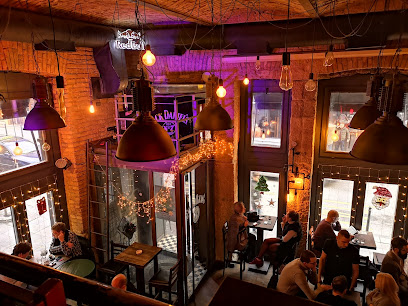
Celtic Pub
Discover the vibrant atmosphere of Celtic Pub in Sarajevo, where local brews and hearty fare come together for an unforgettable experience.
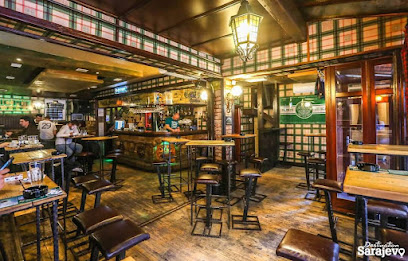
City Pub
Experience the vibrant nightlife and authentic flavors of Sarajevo at City Pub, a top destination for locals and tourists alike.
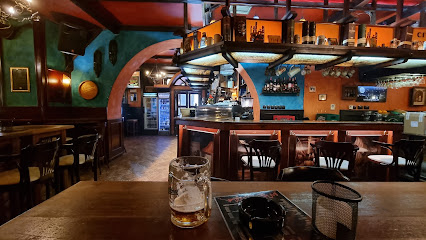
Zlatna ribica
Discover Zlatna Ribica, Sarajevo's vibrant bar that offers a unique blend of local culture, exquisite drinks, and lively atmosphere for an unforgettable night out.
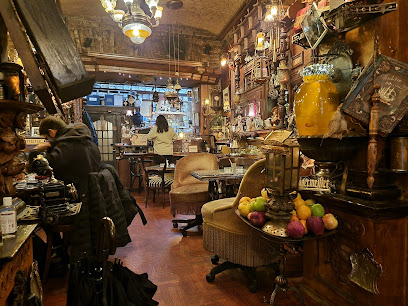
Blind Tiger
Experience the taste of Sarajevo at Blind Tiger, a cozy restaurant and bar serving delicious local dishes and crafted cocktails.
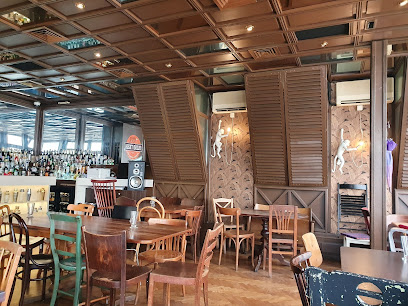
Freaky's Pub
Experience the lively vibe of Sarajevo at Freaky's Pub, where delicious drinks and friendly faces create unforgettable nights.
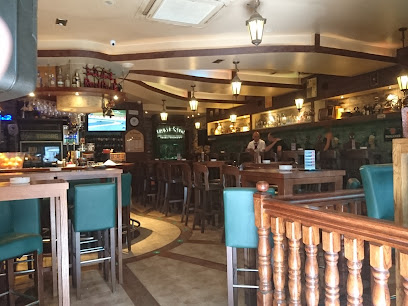
Caffe Selfie, Sarajevo
Discover the vibrant atmosphere and creative cocktails at Caffe Selfie, a must-visit cocktail bar and hookah haven in Sarajevo.
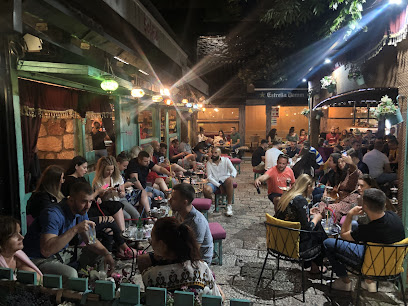
Jazzbina
Experience the vibrant rhythms of Sarajevo at Jazzbina, where live jazz music meets warm hospitality in an inviting atmosphere.
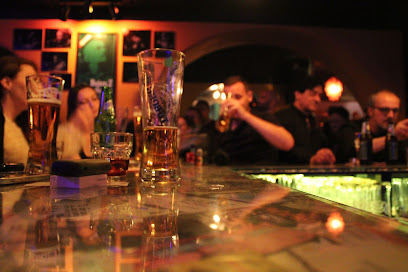
Viking Pub
Discover Viking Pub in Sarajevo: A lively pub offering local flavors, diverse drinks, and a welcoming ambiance for an unforgettable experience.
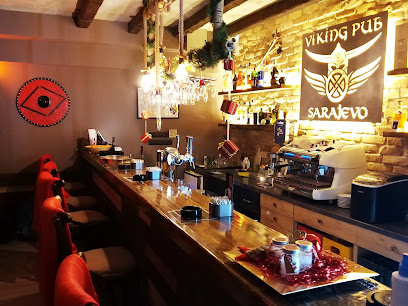
Pink Houdini
Discover Sarajevo's vibrant jazz scene at Pink Houdini – a lively bar and blues club offering unforgettable live performances and a welcoming atmosphere.
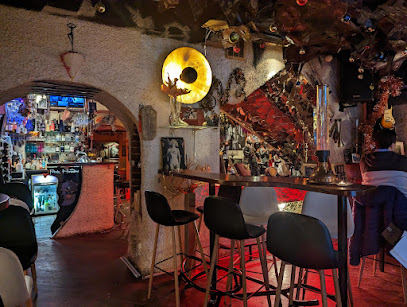
Barometar
Discover the heart of Sarajevo at Barometar, where vibrant bar culture meets cozy café charm in a welcoming atmosphere.
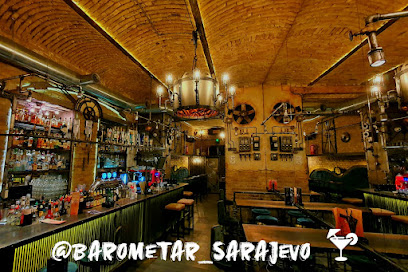
Aperitivo bar
Discover the vibrant Aperitivo Bar in Sarajevo, a cocktail haven offering expertly crafted drinks and a lively atmosphere in the heart of the city.
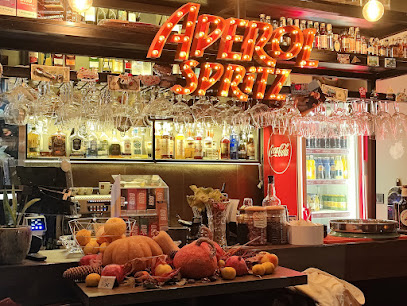
Deco Bar
Discover Deco Bar, a charming oasis in Sarajevo, perfect for relaxing with friends and enjoying a wide selection of beverages in a cozy atmosphere.
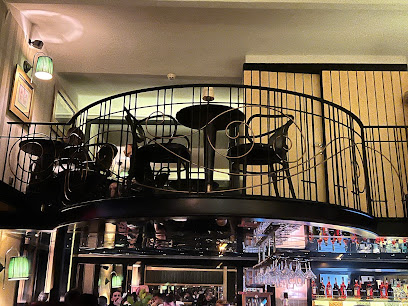
Vamonos Bar
Discover the vibrant flavors of Tex-Mex at Vamonos Bar in Sarajevo, where great food and lively ambiance await.
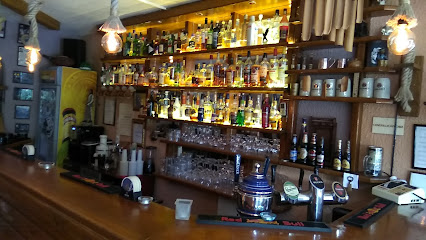
Red Door Pub
Discover the lively spirit of Sarajevo at Red Door Pub, where local flavors and a vibrant atmosphere await every visitor.
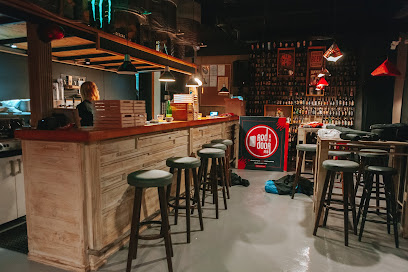
Local Phrases about Sarajevo Surroundings
-
- HelloZdravo
[Zdrah-voh] - GoodbyeDoviđenja
[Doh-vee-jen-ya] - YesDa
[Dah] - NoNe
[Neh] - Please/You're welcomeMolim
[Moh-leem] - Thank youHvala
[Hvah-lah] - Excuse me/SorryIzvinite
[Eez-vee-nee-teh] - How are you?Kako si?
[Kah-koh see?] - Fine. And you?Dobro. A ti?
[Doh-bro. Ah tee?] - Do you speak English?Govorite li engleski?
[Goh-voh-ree-teh lee ehn-gleh-skee?] - I don't understandNe razumijem
[Neh rah-zoo-mee-yem]
- HelloZdravo
-
- I'd like to see the menu, pleaseMolim vas, da vidim meni
[Moh-leem vahs, dah vee-deem meh-nee] - I don't eat meatNe jedem meso
[Neh yeh-dehm meh-so] - Cheers!Živjeli!
[Zhee-vye-lee] - I would like to pay, pleaseŽelim platiti, molim
[Zheh-leem plah-tee-tee, moh-leem]
- I'd like to see the menu, pleaseMolim vas, da vidim meni
-
- Help!Pomoć!
[Poh-moh-ch] - Go away!Idi odavde!
[Ee-dee oh-dahv-deh] - Call the Police!Pozovite policiju!
[Poh-zoh-vee-teh poh-lee-tsee-yoo] - Call a doctor!Pozovite doktora!
[Poh-zoh-vee-teh dohk-toh-rah] - I'm lostIzgubio/la sam se
[Eez-goo-byoh/lah sahm seh] - I'm illBolestan/sna sam
[Boh-leh-stahn/snah sahm]
- Help!Pomoć!
-
- I'd like to buy...Želim kupiti...
[Zheh-leem koo-pee-tee] - I'm just lookingSamo gledam
[Sah-moh gleh-dahm] - How much is it?Koliko košta?
[Koh-lee-koh koh-shta?] - That's too expensiveTo je prekupo
[Toh yeh preh-koo-poh] - Can you lower the price?Možete li spustiti cijenu?
[Moh-zheh-teh lee spoos-tee-tee tsee-yeh-noo?]
- I'd like to buy...Želim kupiti...
-
- What time is it?Koliko je sati?
[Koh-lee-koh yeh sah-tee?] - It's one o'clockJedan je sat
[Yeh-dahn yeh saht] - Half past (10)Pola jedanaest
[Poh-lah yeh-dah-nah-ehst] - MorningJutro
[Yoo-troh] - AfternoonPopodne
[Poh-pohd-neh] - EveningVeče
[Veh-cheh] - YesterdayJuče
[Yoo-cheh] - TodayDanas
[Dah-nahs] - TomorrowSutra
[Soo-trah] - 1Jedan
[Yeh-dahn] - 2Dva
[Dvah] - 3Tri
[Tree] - 4Četiri
[Cheh-tee-ree] - 5Pet
[Peh-t] - 6Šest
[Shehst] - 7Sedam
[Seh-dahm] - 8Osam
[Oh-sahm] - 9Devet
[Deh-veht] - 10Deset
[Deh-seht]
- What time is it?Koliko je sati?
-
- Where's a/the...?Gdje je...
[Gdyeh yeh] - What's the address?Koja je adresa?
[Koh-yah yeh ah-deh-sah] - Can you show me (on the map)?Možete li mi pokazati (na mapi)?
[Moh-zheh-teh lee mee poh-kah-zah-tee (nah mah-pee)] - When's the next (bus)?Kada je sledeći (autobus)?
[Kah-dah yeh sleh-deh-chee (ow-toh-boos)] - A ticket (to ....)Jednu kartu (do ...)
[Yeh-dnoo kahr-too (doh ...)]
- Where's a/the...?Gdje je...
History of Sarajevo Surroundings
-
The area surrounding Sarajevo has been inhabited since the Neolithic era, with the ancient Illyrians settling in this region around 2000 BC. They were known for their unique culture and skills in metalwork, and their settlements laid the groundwork for future civilizations in Bosnia and Herzegovina.
-
Following the Illyrians, the Romans arrived in the 9th century BC, bringing significant changes to the region. They established the settlement of Aquae Sulphurae, known today as Ilidža, which became famous for its thermal springs. Roman architecture, roads, and culture left a lasting impact on the Sarajevo surroundings.
-
During the 12th and 13th centuries, the area around Sarajevo was part of the medieval Bosnian Kingdom. The town of Vogošća, just north of Sarajevo, was a significant site during this period. Medieval fortresses such as the Bijela Tabija were constructed to defend the kingdom from external threats.
-
The Ottomans conquered the Sarajevo region in the mid-15th century, initiating a period of profound change. The Ottomans established Sarajevo as a significant administrative and trading center. The Gazi Husrev-beg Mosque, constructed in 1531, and the Ilidža Spa are notable remnants from this era.
-
In 1878, the Austro-Hungarian Empire took control of Bosnia and Herzegovina, including Sarajevo and its surroundings. Their influence is evident in the region’s architecture, such as the Sarajevo City Hall, and the development of infrastructure. Ilidža continued to flourish as a spa town during this period.
-
On June 28, 1914, Archduke Franz Ferdinand of Austria was assassinated in Sarajevo, an event that precipitated World War I. The assassination, carried out by Gavrilo Princip, took place near the Latin Bridge and had profound global consequences.
-
Following World War II, Sarajevo became part of the Socialist Federal Republic of Yugoslavia. The surrounding areas saw significant industrialization and urban development. Notable landmarks from this era include the Skakavac Waterfall and the mountain resort Bjelašnica, which was developed for the 1984 Winter Olympics.
-
From 1992 to 1996, Sarajevo and its surroundings endured the longest siege in modern history during the Bosnian War. The area experienced severe destruction and hardship. Sites like the Sarajevo Tunnel Museum and the war-damaged buildings stand as reminders of this brutal period.
-
Since the end of the Bosnian War, Sarajevo and its surroundings have undergone extensive reconstruction and cultural revival. The region now hosts numerous festivals, such as the Sarajevo Film Festival, and it has become an important symbol of resilience and multiculturalism. Significant efforts have been made to preserve and restore historical sites.
Sarajevo Surroundings Essentials
-
Sarajevo is well-connected by air, road, and rail. The primary entry point is Sarajevo International Airport (SJJ), located approximately 12 kilometers southwest of the city center. There are flights connecting Sarajevo with major European cities. By road, the E73 highway connects Sarajevo with other Bosnian cities and neighboring countries. Train services are available, but they are less frequent and may not be as comfortable as buses. For those driving, renting a car is an option, but be aware of mountainous terrain and varying road conditions.
-
Sarajevo offers a variety of transportation options. The public transportation system includes trams, buses, and trolleybuses, which are affordable and cover most parts of the city. Taxis are readily available and reasonably priced, but it’s advisable to use registered taxi services. For more flexibility, renting a car is a good option, especially for exploring the surrounding areas. Biking is also becoming more popular, with several rental spots in the city.
-
The official currency in Bosnia and Herzegovina is the Bosnian Convertible Mark (BAM). Credit and debit cards are widely accepted in Sarajevo, particularly in hotels, restaurants, and larger shops. However, it is advisable to carry some cash, especially for smaller establishments and markets. ATMs are plentiful in Sarajevo, but it’s wise to notify your bank of your travel plans to avoid any issues with card usage.
-
Sarajevo is generally a safe city for tourists, but like any urban area, it’s important to stay vigilant. Avoid walking alone at night in less populated areas and always keep an eye on your belongings in crowded places. Some areas such as Baščaršija and the Old Town can get crowded, so be cautious of pickpockets. Although crime rates targeting tourists are relatively low, it’s best to stay aware of your surroundings.
-
In case of an emergency, dial 122 for police, 123 for fire, and 124 for medical emergencies. English-speaking operators are usually available. For non-emergency medical needs, there are several hospitals and clinics in Sarajevo. It is recommended to have travel insurance that covers medical emergencies. Pharmacies are widely available for minor health issues and over-the-counter medications.
-
Fashion: Do dress conservatively, especially when visiting religious sites. Avoid wearing revealing clothing. Religion: Do respect local customs and traditions, especially in mosques and churches. Public Transport: Do be polite and give up your seat to the elderly or those in need. Don't eat or drink on public transport. Greetings: Do greet people with a handshake. A slight bow of the head is also a sign of respect. Eating & Drinking: Do try local delicacies and accept food offerings graciously. Don’t refuse hospitality, as it is considered impolite.
-
To experience Sarajevo like a local, visit the local markets such as Markale Market for fresh produce and traditional Bosnian goods. Engage with locals; they are often friendly and willing to share stories about the city’s history and culture. Don’t miss out on traditional Bosnian coffee and cevapcici. For a unique experience, take a stroll through Baščaršija, the old bazaar, and explore its narrow streets and artisan shops. Also, consider taking a hike on the nearby mountains such as Trebević for stunning views of the city.
Trending Landmarks in Sarajevo Surroundings
-
Baščaršija
-
Vrelo Bosne
-
Sebilj
-
Tunnel of Hope
-
Latin Bridge
-
Sarajevo City Hall
-
Yellow Fortress
-
Vječna vatra
-
Avaz Twist Tower
-
The National Museum of Bosnia and Herzegovina
-
Gazi Husrev-beg Mosque
-
Tarcin Forest Resort & Spa Sarajevo - MGallery
-
Mrvica Old Town
-
Ali Pasha's Mosque
-
Museum of Crimes Against Humanity and Genocide
Nearby Cities to Sarajevo Surroundings
-
Things To Do in Zenica
-
Things To Do in Mostar
-
Things To Do in Tuzla
-
Things To Do in Jajce
-
Things To Do in Nikšić
-
Things To Do in Trebinje
-
Things To Do in Makarska
-
Things To Do in Dubrovnik
-
Things To Do in Banja Luka
-
Things To Do in Perast
-
Things To Do in Herceg Novi
-
Things To Do in Tivat
-
Things To Do in Kotor
-
Things To Do in Hvar
-
Things To Do in Split













